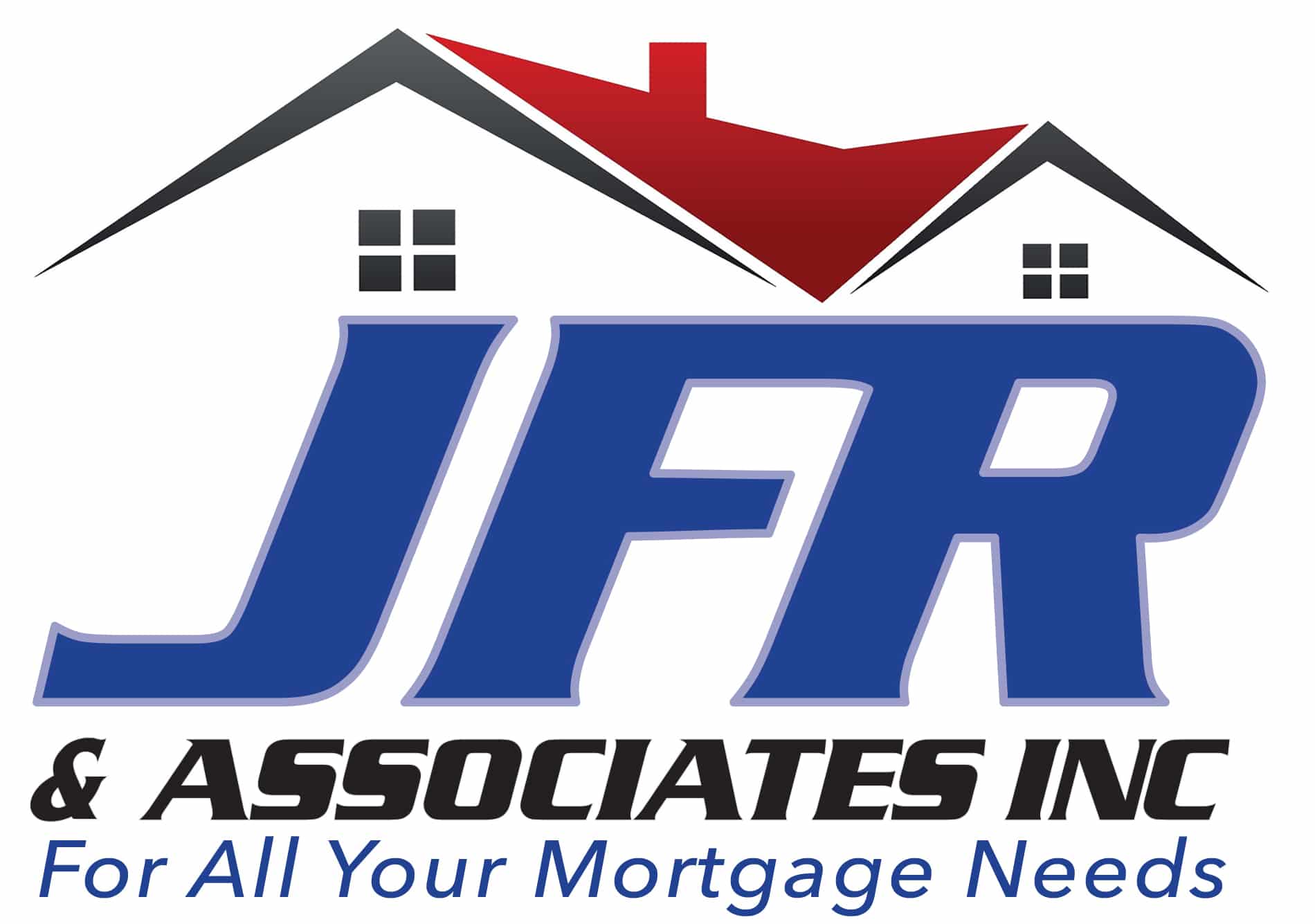How to Buy a Home in Colorado
Deciding to buy a home is exciting and challenging at the same time.
We get it…
Buying a house is a huge decision, one that is very emotional.
What’s more…
It’s also an investment that will require you to make a significant financial commitment.
So as you look at houses for sale, you have to consider what you’re looking for, where you want to live, how much you can afford, and whether or not you qualify for financing.
So take time and crunch the numbers; you may be pleasantly surprised that your mortgage payments are less than what you’re paying for rent.
By and large…
Over the years, purchasing a home in most U.S. markets has been an excellent long-term investment.
Equally important…
Remember this… rents over the next ten years will increase.
For that reason…
Keep in mind, once you get your mortgage the payment (principal and interest) will remain the same throughout the term of the loan.
The value of your home will increase with time.
Not your monthly payment.
“Purchasing a home brings up many different feelings and emotions… some good and some bad. However, once you decide to become a homeowner, you’ll feel a sense of achievement and joy in your life that you now have a place to call your home.”
I know applying for a mortgage can be difficult and scary.
But don’t worry…
By the time you finish reading this article you’ll be feeling really good about getting your loan.
I’ll walk you through the whole process…
So let’s begin…
Following these 5-steps can help move you closer to homeownership.
1. Before You Buy a Home, Determine How Much You Can Afford.
One of the challenges when looking at beautiful homes for sale or online is that it gives you an idea of what you want in a home and what’s available.
Besides that…
It’s always a good idea to know what you can afford.
Take a look at your income, savings, and your debt.
With a handle on these three areas, you’ll be able to purchase your new home easier and stay in your budget.
2. Decide What You Want in Your New Home.
Next, make a list with the things you want in your home and what you don’t want.
For example, you want three bedrooms, garage, storage space, air conditioning and a backyard for your dog etc.
You don’t want to live in the country or too far from the city.
This way, you’ll know where to start looking.
3. Before You Buy a Home, Review Your Credit Score and Debts.
Your credit score should be 620 or above to qualify for a conventional mortgage. If your FICO score is 740 or more, you can be eligible for the best available interest rates.
Most lenders require a 620 Credit score to get a home loan.
In fact…
With that said, it’s still possible to get a loan with a lower credit score, including a score in the 500s.
Another factor that impacts your mortgage options is your debt-to-income ratio (DTI). Your DTI represents your gross monthly income allocated to repay your current debt. Auto loans, student loans, and credit cards are all common types of debt.
The ideal DTI is 43% to qualify for a mortgage.
However, lenders usually prefer a debt-to-income ratio of less than 36%, with no more than 28% of the debt going towards servicing a mortgage or rent payment.
The maximum DTI ratio will vary from lender to lender.
Another key point…
If you are struggling with your payments, you might want to delay committing to a 15 or 30-year mortgage. The last thing you want to do is get into a mortgage where you have to struggle to make the payment every month.
4. Down Payment Funds.
Up to the present time…
Conventional mortgage advice always encourages people to save 20% for a down payment on a home.
However, in today’s market, when you wait to save more money, you could spend more on your home’s cost due to rising home values.
The good news is that there are plenty of mortgage options that offer a lower down payment, where you can purchase a home with 3.5% to 5% down.
As a matter of fact…
In addition, some mortgage programs offer a 0% down payment for those who qualify.
5. Get Pre-Approved Before You Buy a Home.
Here’s why this is important…
Before you go out and start shopping for a home, you’ll want to apply for a pre-approved home loan, 30 to 60 days before you begin your search.
Then, when you have your finances in order, you’ll be able to move quickly to make an offer.
Now that you have a basic idea of what’s involved in getting your home loan, let’s move into the different types of loans and how they work.
So let’s take a closer look…
Why It’s Important to Understand Your Loan Options When You Buy a Home
Above all…
All loans are different and designed for various needs and circumstances.
Understanding the different types of loans can help you make the right choice for your home loan.
If all of this sounds over whelming… don’t worry. We’re here as your mortgage broker to take all the stress out of getting your home loan.
So let’s get down to business…
The following information will show your choices and how the different loans affect your monthly payment, risk level, and overall cost.
3-Factors make up your loan options:
Other Loans and How They Work Menu
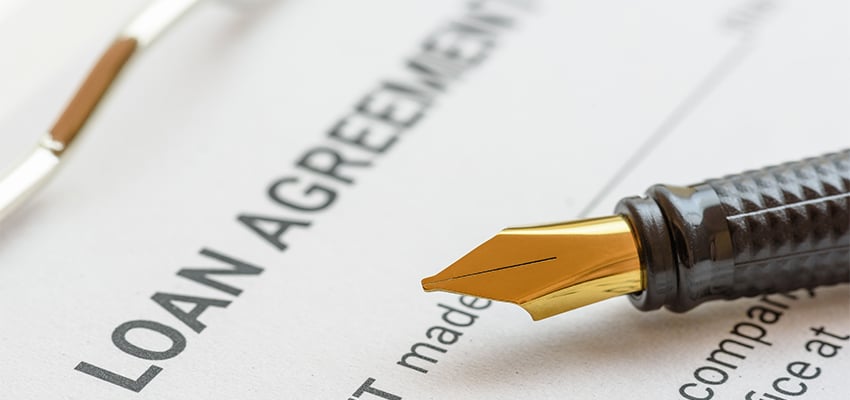
I want to call your attention to the different…
Loan Types Available
CONVENTIONAL, FHA OR SPECIAL PROGRAMS
Here’s how the plan you choose will impact your loan in these areas:
- How much of a down payment you need.
- The price of the house you’re looking at and how much you can borrow.
- How much the total cost of your loan is and including mortgage insurance and interest.
Advantages of Conventional Loans
- This is the most popular loan.
- Conventional loans are a little harder to get; however, they usually cost less than FHA loans.
- Once you reach 20% equity, you can request the lender to cancel the private mortgage insurance (PMI). Or you can refinance to remove it.
- Borrowing costs are lower than other types of mortgages, even if interest rates are higher.
- Pay as little as 3% down on loans backed by Freddie Mac or Fannie Mae.
- You can use this mortgage for your primary home, investment property, or second home.
- Sellers contribute to the closing cost.
Disadvantages of Conventional loans
- You need a minimum FICO score of 620 or higher.
- Your debt to income (DTI) ratio needs to be 43% and sometimes lenders will go up to 50%.
- A higher down payment is required than some of the government loans.
- You need documentation to verify income, down payment, assets and employment.
- If your down payment is less than 20% of the sales price, you’ll need to pay Private Mortgage Insurance (PMI).
Who are Conventional loans designed for?
A conventional mortgage would be best for you if you have a large down payment and a strong credit score. The most popular conventional mortgage is a 30-year, fixed-rate loan.
Let’s take a look at…
Why FHA loans are so popular today…
FHA LOANS
Here’s how it works…
FHA loans are backed by the government and insured by the Federal Housing Administration.
The loans are available to buyers with poor or no credit. You can use them to purchase various property types, such as single-family homes, townhomes, condominiums, and mobile homes.
In addition, the loans are suitable for home improvement projects, including adding a room to a house, improving the landscaping, or building an addition.
FHA loans require lower down payments and closing costs than conventional mortgages. Plus you get a loan for 15-year or 30-year terms with fixed interest rates.
However…
Borrowers must pay mortgage insurance to protect the lender if the borrower doesn’t make their payments.
The mortgage insurance premium will cancel after 11 years for most borrowers, provided you have financed 90% of the property’s value.
In other words, you must put down 10% and stay current with your monthly mortgage payment.
What do I need to qualify for an FHA Loan?
To qualify for an FHA loan, you’ll need the following:
- A credit score of 580 or more qualifies for a 3.5% for your down payment.
- If your credit score falls between 500 t0 579, you’ll need 10% for a down payment.
- Your debt ratio cannot exceed 43% of your gross monthly income.
- Depending on your circumstances, lenders could sometimes allow up to 50%.
Is an FHA loan best for you?
For one thing…
An FHA loan might be best for you if you have good credit but no significant down payment.
With this in mind…
FHA loans are also an excellent option for people without good credit or a large amount of money to use for a down payment.
Remember that an FHA loan will cost more due to the mortgage insurance.
While this may be true.
The simple truth is…
An FHA loan could be a perfect fit to help you purchase a home… that you otherwise couldn’t buy.
Summary of FHA Loans:
- FHA loans require a lower down payment, usually a 3.5% minimum.
- They are designed for those with lower credit scores.
- You can qualify for an FHA loan with a DTI ratio of 43%.
- FHA loans benefit first-time home buyers.
- You need a credit score of 580 or higher.
- Low down payments and requires mortgage insurance.
- Maximum LTV ratio of 96.5%.
- Typically higher percentage points than a conventional loan (0.5 to 1.5%).
Let us know if you have any questions about FHA loans by calling 303-761-8045 for details.
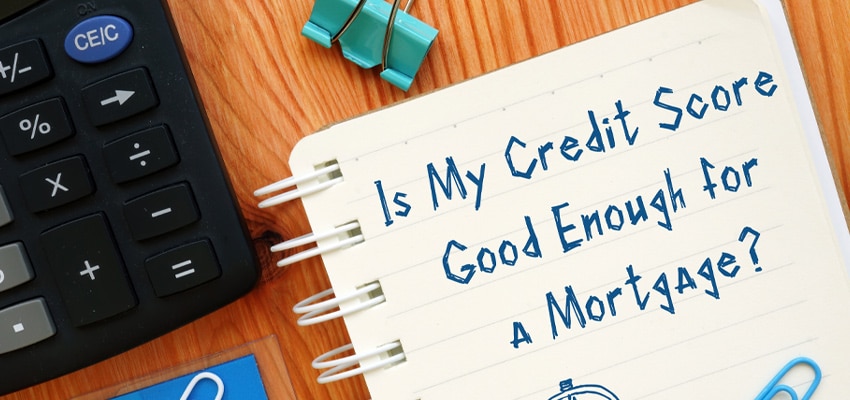
Special Programs:
VA LOANS: Are designed for veterans, service members, and eligible surviving spouses.
VA loans provide flexible low-interest mortgages for the members of the U.S. military, active duty and veterans, and their families.
There’s no minimum down payment, credit score, or mortgage insurance.
Closing costs are capped and paid by the seller.
There is a funding fee and a percentage of the loan amount, which is paid upfront or rolled into the loan along with other closing cost.
USDA LOAN (or Rural Development Loan): Helps low to middle-income families in rural areas who have no other way to make affordable homeownership possible.
USDA loans don’t require a down payment.
However, there are additional fees, 1% of the loan amount, which gets paid upfront or financed with the loan, and an annual fee.
State and Local Programs: These programs focus on helping low- and moderate-income families find their first home.
Some programs reach out to teachers, public service employees, or firefighters.
And some programs help with down payment assistance.
Loans are regulated and insured by the government.
Here’s how the terms of your loan works…
Loan Terms
30 years, 20 years, 15 years, Or Choose Anywhere from 8 – 29 years
The loan term represents the length of time of your loan. The average period is 30 years for home mortgages.
The longer-term allows you to reduce your monthly payments.
Thus leaving you more cash to run your household.
Understanding the Terms of Your Loan
How Shorter Terms Affect You:
- Your payments are HIGHER.
- Usually LOWER interest rates.
- You have LOWER costs.
How Longer Terms Affect You
- Your payments are LOWER.
- Usually HIGHER interest rates.
- You have HIGHER costs.
Here’s the thing about terms…
With a shorter-term loan you’ll save on interest costs. But your monthly payments are much higher than a 30-year mortgage monthly payment.
Typically, with a longer term your monthly payment will be less.
However, you’ll pay more interest over the life of the loan.
Most importantly…
It comes down to what your circumstances are and your needs when looking at the different terms.
When you work with our mortgage brokers, we’ll sit down and go over all the details with you, and see which program suits you best.
That way you don’t have to try to figure everything out right now.
We’ll do all the work for you.
And next we’ll look at…
Interest Rates
Interest Rates come in two types: FIXED RATE and ADJUSTABLE RATE.
You have only two options when it comes to interest rates.
They are either fixed-rate loans or adjustable-rate loans.
To begin with…
The plan you choose will impact your loan in these areas:
- The amount of interest you’ll pay over the length of your loan.
- If the interest rate will change over the term of your loan.
- If your monthly payment (principal and interest) will change.
Understanding Interest Rates
Fixed Rate
- You have LOWER risk.
- Interest rates are HIGHER.
- Rate stays the same.
- Your monthly payments stay the same.
Adjustable Rate
- You have HIGHER risk.
- Your interest rate is LOWER in the beginning of your loan.
- After the fixed period, your rate can decrease or increase based on the market.
But there’s even more…
Other Types of Special Loans to Help You Buy a Home
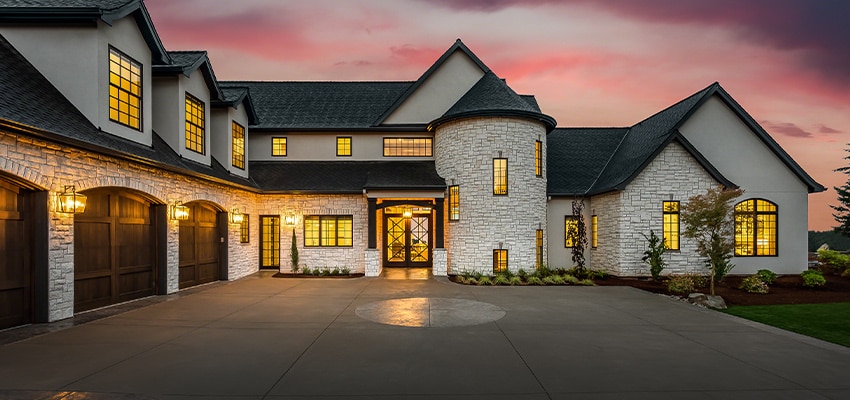
Jumbo Loans
Jumbo loans are used to finance properties that are more expensive than what a conventional conforming loan can cover.
And another thing…
These loans allow buyers to buy luxury homes or homes in areas with extremely high home values.
Summary of Jumbo Loans
- Requires a FICO score of 700 or higher.
- Offers competitive interest rates.
- Requires a down payment of 20% or more.
- They are available at both fixed and variable rates.
- Monthly payments run higher.
- You cannot have a DTI ratio above 45%.
- You might need to show substantial cash reserves.
- It may require an LTV of 80% or lower.
- It may require more in-depth documentation to qualify.
- Closing costs may run higher than conventional loans.
Contact us today at 303-761-8045 if you would like more information on Jumbo loans.
Piggyback Mortgages
When you have a first mortgage and a second one was taken out simultaneously, it’s called a piggyback mortgage.
A piggyback loan allows buyers with a lower down payment to have additional money to qualify for a loan without private mortgage insurance (PMI).
Piggyback mortgages are also known as 80-10-10 mortgages. This loan lets you buy a home with two mortgages totaling 90% of the purchase price and a 10% down payment.
The piggyback loan gets its name because the smaller loan piggybacks on the larger loan.
Nevertheless…
For this loan to work, you’ll want to make sure that your new mortgage payment is less than what your PMI would have been.
Most importantly…
If you’re not saving more than you would pay for private mortgage insurance, this isn’t a good plan.
If you’re unsure about this or have questions, contact us at 303-761-8045 for details.

Construction Loans
For instance…
If you choose to build a custom home, you’ll need a particular type of loan.
You’ll want to look at a construction loan.
Because construction loans are designed for those, who desire to build a new home, they are short-term loans, generally for one year, and different from a mortgage.
Upon completion of the house, the owner must apply for a regular mortgage.
Construction loans carry a higher interest rate because they are considered risky.
The payments come in installments to the borrower as different building phases of the project reach completion. More money is released.
For example, upon completion of the foundation, money is released as the first draw. Next, the lender releases the second draw upon completion of the framing and so on throughout the project.
Most importantly…
If you own land without a mortgage, you can use the equity in the land as part of your downpayment to build your house.
Summary of Construction Loans:
- High-risk loans.
- Larger down payments and higher interest rates.
- You may have to pay a 20 to 25% down payment.
- Have a credit score of 620 or higher
Your debt-to-income ratio must be below 45%. - You may qualify for a construction loan through a government agency like the VA or the FHA.
- Some lenders use a variable rate index (like the prime rate) during construction.
Different types of home-building loans cover remodeling your entire house.
Beyond that..
Whatever your needs are, we have custom loans to assist you with your home projects.
Balloon Mortgages
For the most part…
A real estate balloon mortgage typically has no or low monthly payment at the beginning of the loan term. Then, the entire amount is due in a lump sum at the end of the period.
Thus, calling it a balloon payment.
Balloon mortgages have a shorter term, anywhere from a few months to three or ten years.
Summary of Balloon Mortgages:
- You have a one-time payment that is larger than usual at the end of the term.
- The payments are lower in the beginning years. However, you could owe an enormous amount when it comes due.
- You pay more interest on this type of loan.
- Interest rates are higher.
- Initially, you may have smaller, no, or interest-only payments.
- You can defer payments for years.
- Due to the smaller payment, you may be able to afford a home you couldn’t get without this type of loan.
- No prepayment penalty.
- These loans are risky because of the lump sum that comes due.
- This loan could be hard to refinance later on.
Even though there may be a few scenarios where this type of loan would make sense, it may not be a good idea for many people.
What’s more…
An FHA or VA loan might make more sense because they limit your initial cost in the beginning.
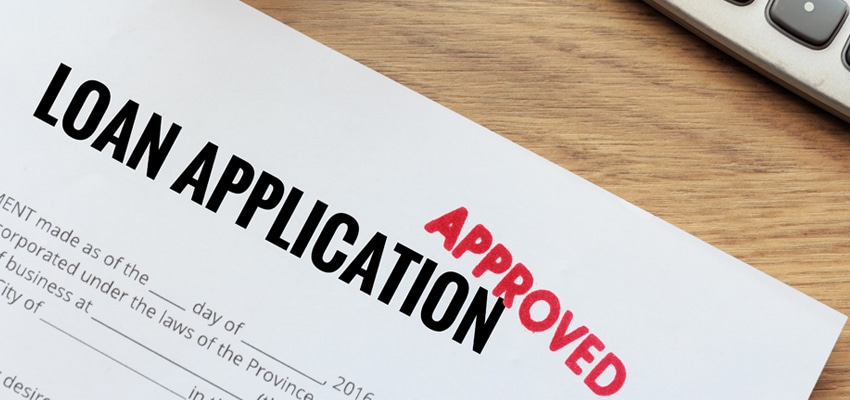
Interest-only Loans
An interest-only loan is where the borrower pays only the interest in the beginning of the term. The principal stays the same during this period.
One thing for sure you want to remember…
Once the interest-only period ends, you must start making payments of principal and interest.
Most importantly…
When the interest-only ends and you must pay principal and interest, your payments can cost you double or triple what you initially started with at the beginning of your loan.
Besides that…
If payments become too high, you can try and negotiate a longer-term or cheaper rate.
Summary of Interest-only Loans:
- Lower monthly payments.
- You can pay this loan off faster than a conventional loan.
- Interest rates may be lower.
- No payments are only temporary.
- Interest rates can go up.
- Payment terms vary.
- Refinancing can cost you about 2% to 5% of the total loan.
An interest-only loan has advantages and disadvantages.
It depends on what you’re trying to achieve and what your financial situation looks like.

Bridge Loans
For the most part…
A bridge loan is a short-term loan used to bridge the gap between selling your previous home and buying a new one.
For example, trying to sell your home and purchase another one can be challenging to time both transactions simultaneously.
For one thing…
A bridge loan can help you get into your new home even if your previous one hasn’t sold.
The bridge loans ordinarily last for about a year before you begin repayment.
Summary of Bridge Loans:
- The banks will look at your debt-to-income ratio, home equity, and credit score in your income.
- Beneficial in a seller market.
- It’s faster to qualify for a bridge loan.
- You’ll have two mortgage fees.
- Higher interest rates.
- A bridge loan is hard to qualify for if you don’t meet the lender’s requirements.
A bridge loan could be the answer you’re looking for, depending on your financial situation.
What is Private Mortgage Insurance, and How Does it Work?
Private mortgage insurance (PMI) protects the lender if you don’t make your payments.
There are no benefits to the borrower with mortgage insurance; it only protects the lender if you don’t pay.
Here’s why this is important…
Without mortgage insurance, folks with less than 20% to buy a home would be unable to purchase a home. If you require PMI, your lender will include it in your monthly payment.
The cost of PMI depends on the following:
- The value of your home.
- Your PMI type.
- If you have a fixed or adjustable interest rate.
- Your credit score.
- Your loan-to-value (LTV) ratio.
- How long the term is on your mortgage.
- How much insurance your lender says you need.
- On average, rates range from 0.5 to 1.3 percent of the LTV.
How To Do Away with Mortgage Insurance
First thing to remember…
The secret to doing away with mortgage insurance is having 20% equity in your home.
However, It doesn’t go away automatically.
It usually is eliminated by refinancing and getting a new home appraisal to ensure that you meet the guidelines.
And another thing…
It’s up to you to initiate the refinancing process.
Not the lender.
FAQ: Our Customers Want to Know…
How much does it cost to buy a home in Colorado?
Colorado is an expensive place to call home. The price of an average single-family home is $678,100, up 6.6% from last year. However, on the positive side you have many options for where you want to live.
The price of homes fluctuates depending on where you decide to live. Colorado is a beautiful state; you can find the best homes in the most beautiful places.
Are home prices dropping in Colorado?
The Denver housing market is slowing down. With the higher interest rates, buyer demand for homes has declined. As a result, pricing for homes in 2023 is projected to drop between 4-6% by year-end.
The good news is the Denver housing market is shifting to a balanced market. A balanced market has 3 to 6 months of inventory.
Is Colorado cheap to live in?
Colorado is an expensive, beautiful place to call home. The cost of living is 12% higher than the national average. And housing cost run 15% more than the national average. Colorado offers many options for finding your perfect home.
You can choose to live in the city, small Mountain towns, to rural communities. The overall cost of living is generally more expensive here; however, expenses such as utility and food are less than national averages. To live comfortably in Colorado, you have to earn over $100,200 annually.
Is it cheaper to rent or buy a house in Colorado?
Usually, it’s cheaper to own a home than it is to rent in Metro Denver. Today, renters now have an advantage over homeowners because of how the price of homes has increased over the past year. As a result, the Denver market has leaned more toward renting now.
When you buy a home, you have privacy, ownership, and home equity. However, it’s expensive regarding taxes, interest, insurance, and repairs.
On the other hand, renting an apartment is lower maintenance and more flexible.
What are today's mortgage rates in Colorado?
Getting Ready to Buy a Home? We’ll Find You the Best Rate and Terms Possible
To begin with…
The pre-approval process starts with a phone call to discuss your financial outlook and mortgage needs and options.
The first thing to do is…
Contact a licensed mortgage consultant or call 303-761-8045 and let us know how we can help you make your dream home a reality.
It all boils down to this…
Having an expert on your team can give you an advantage, help you understand your budget’s flexibility, and walk you through the whole process.
P.S. If you didn’t have time to read this entire article, I’ll fill you in on what you missed.
1. Here’s a fantastic way to get your mortgage and buy a home in Colorado.
2. We covered all the different types of mortgage loans and how they work.
3. Five steps to move you closer to homeownership.
4. Why you’ll save money and time using a mortgage broker.
5. Plus, lots more about mortgage loans…
Get pre-approved for your new home today.
You May Also Like...
Find the Best Colorado Mortgage Programs
How to Find the Best Colorado Mortgage ProgramsColorado mortgage programs...
What Credit Score Is Needed for a Home Loan?
What Credit Score Is Needed for A Home Loan?Your credit score is...
Home Loan Pre-Approvals: Fast & Easy. No Stress. No Hassle.
Home Loan Pre-Approvals: Fast & Easy. No Stress. No Hassle.The home...
